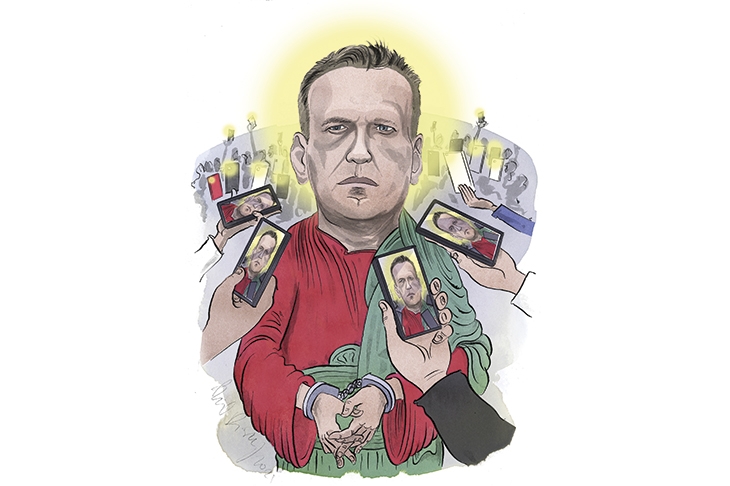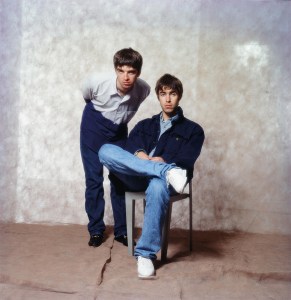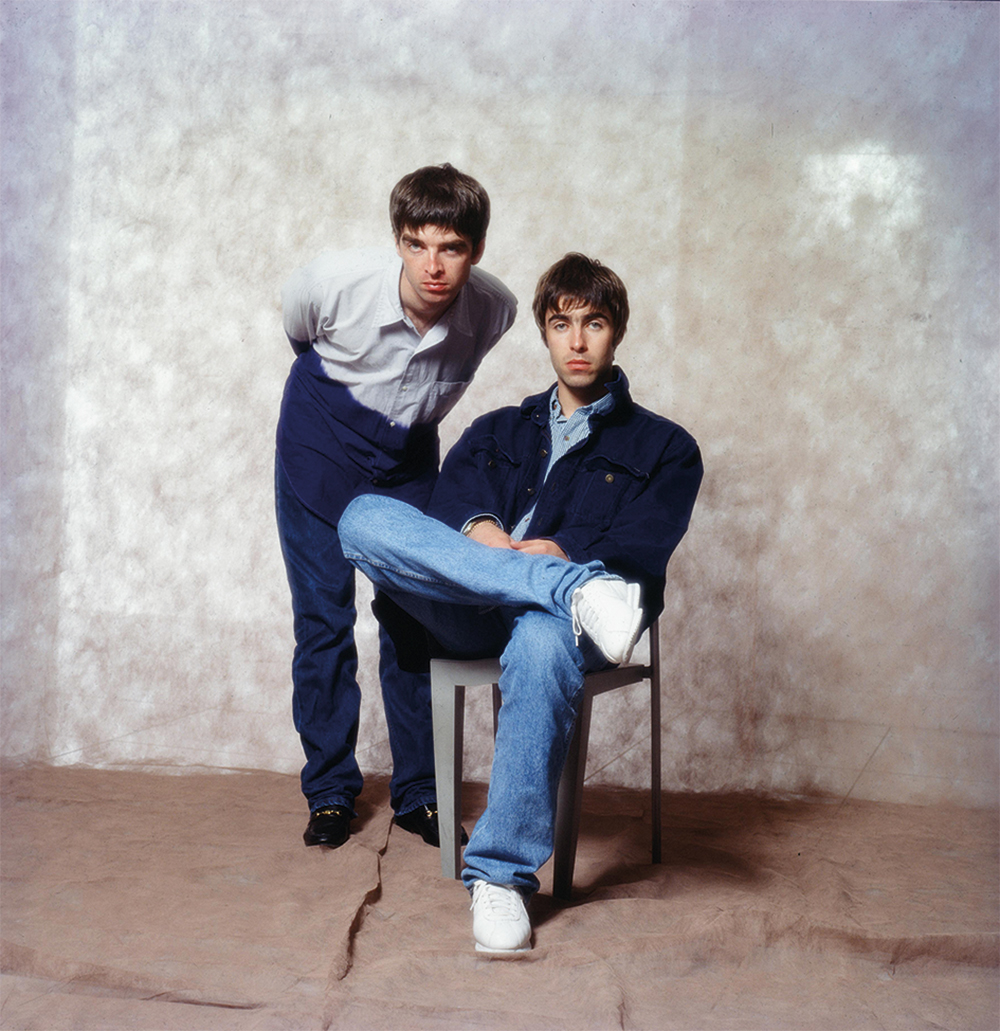Yesterday Russian opposition leader Alexei Navalny achieved his martyrdom, with a paneled courtroom packed with journalists and Western diplomats standing in for Golgotha. A Moscow judge turned an outstanding two-year, eight-month suspended sentence for fraud into a prison term on the grounds that Navalny had missed probation hearings — dismissing as frivolous his excuse that he was lying in a Novichok-induced coma in a Berlin hospital bed at the time.
In one sense, Navalny has achieved what he set out to do. Two weeks of street protests in 85 cities across Russia followed his arrest after a voluntary return from his German convalescence — the most serious overt political challenge to Putin’s authority since his return to the presidency in 2012. It’s been nearly a decade since the beleaguered opposition were so galvanized, or their support so widespread. And thanks to the internet, Navalny’s message has reached far more Russians than any Kremlin-controlled media could hope to do: his video detailing the ownership and interiors of Putin’s $1.37 billion private Black Sea palace has been viewed a staggering 100 million times.
In principle, Navalny is not wrong: people power can and has worked in Russia. I was on Palace Square in St Petersburg on August 21, 1991 when the city filled with hundreds of thousands of people protesting against the hardline coup that temporarily ousted Mikhail Gorbachev. Opposition leaders — including Putin’s then-boss, Mayor Anatoly Sobchak — gave impassioned speeches. The police were nowhere in sight. The Soviet regime was clearly tottering, friendless, discredited, and scared. There was a palpable feeling in the air that the future belonged to the revolutionary masses — just as it had on those same streets in February 1917.
But the fact remains — painful though it is to point out — that the tens of thousands of Russians who have come out in Navalny’s support aren’t enough to make a difference, or even to seriously threaten, Putin’s current grip on power. Not even close. Belarus’s Alexander Lukashenko remains in office despite hundreds of thousands of protesters coming out on the streets, week after week, last summer — and this in a country with a population 18 times smaller than Russia’s. Ukraine’s 2014 Maidan revolution succeeded only after 94 days of escalating street battles that culminated in burning barricades and the deaths of over a hundred after police opened fire on protesters.
Counting the Russian army (1.1 million men), the National Guard (340,000) and the Interior Ministry (930,000), Putin commands a staggering 2.37 million armed men. Russia will only begin to change when Navalny begins to convince, not just his urban liberal supporters, but also the faceless lines of policemen in their masks and riot helmets on the other side of the barricades that something is rotten in the Kremlin.
Does that depressing reality make Navalny a saint or a fool? The majority of my Moscow friends believe that Navalny’s self-immolation has lit a flame, inspiring a new generation of young Russians to risk arrest and police brutality to demonstrate against the regime. ‘Protest is not about revolution,’ says journalist Mikhail Zygar. ‘It’s the normal self-expression of people who value freedom and self-respect.’ Their sentiments have been echoed across the Western press — Raphael Behr in the Guardian writes that Navalny has triggered ‘a change’ in Russian attitudes and shrewdly ‘tunneled underneath the strongman cult, broken into [Putin’s] gaudy palace and got under his skin’. The New York Times quotes Konstantin Gaaze, a sociologist at the Moscow School for Social and Economic Sciences, as saying that ‘Navalny has, for the first time, sparked a Russian protest movement against the President… It is a historic moment for the country.’
I remember covering the second trial of oligarch Mikhail Khodorkovsky, jailed in 2003 for daring to oppose Putin and re-tried on even more absurd charges in 2009 as the end of his first prison term approached. The liberal Muscovite — and Western press — narrative at the time was that Putin feared Khodorkovsky and that if released he would become a totem for Russia’s opposition. Many Russian activists told me that Khodorkovsky’s martyrdom had lent him invincible moral strength that he would parlay into political power. Then, as now, I heard people say that Russians love and respect a man who is unafraid to face down the Kremlin even at the cost of his own life and liberty.
Yet after Khodorkovsky was released in the run-up to the 2014 Sochi Olympics, he retired to relative obscurity in London. His various foundations remain active in supporting the independent press in Russia — but Khodorkovsky never became a serious political figure again, much less a rival to Putin.
‘That’s exactly why Navalny came back! You can’t be an opposition leader from exile in Germany!’ a senior academic wrote to me from Moscow last week. ‘You have to be with your people and suffer with them.’ Perhaps. But as Khodorkovsky proved, you can’t be an opposition leader from inside jail either.
That’s the true pity of Navalny’s imprisonment. Free, he can use his biting irony and devastating, forensic investigations in corruption to spread the word via YouTube to tens of millions of his countrymen. To show them that Putin and his cronies are robbing them blind. Imprisoned, he’s doubtless a potent symbol of the regime’s cruelty — but a necessarily silent one.
Over two weekends of protests, Putin deployed tens of thousands of riot police and detained, at last count, over 9,000 people. With Navalny silenced, will his followers continue the ritual of protest and mass arrests endlessly, or just give up? Until yesterday’s sentencing, they had at least hoped that their actions could perhaps save their hero. Now that Navalny is definitively in jail, further protest becomes just a doomed expression of rage. So does that make the Navalny protests of January 2021 a heroic show of strength by the opposition — or just further, depressing evidence that resistance to the regime on the streets is useless, and that the bad guys always win in the end? Have they signaled the beginning of the end of the Putin regime — or just a high-water mark of the limits and powerlessness of urban liberal opposition?
Putin’s Russia today is very, very far from its breaking point. Until the proverbial revolutionary soldiers and sailors appear among the people shouting against the regime, the well-worn ritual of protest, falling batons and mass arrests can have only one victor. The only realistic way to topple Putin today is to chip away at his power base at the ballot box — starting with upcoming local elections. But to do that effectively the opposition needs a leader as well as constant ammunition, the well-documented investigations of official theft and corruption of the kind that Navalny can produce to devastating effect. But that voice is now silent.
Navalny has chosen the heroic path over the smart one. His extraordinary personal bravery has without a doubt gained him vast moral authority among his supporters in Russia and around the world. But the more sober reality is that the Russian opposition has gained a martyr, but lost an effective leader.
This article was originally published on The Spectator’s UK website.

























